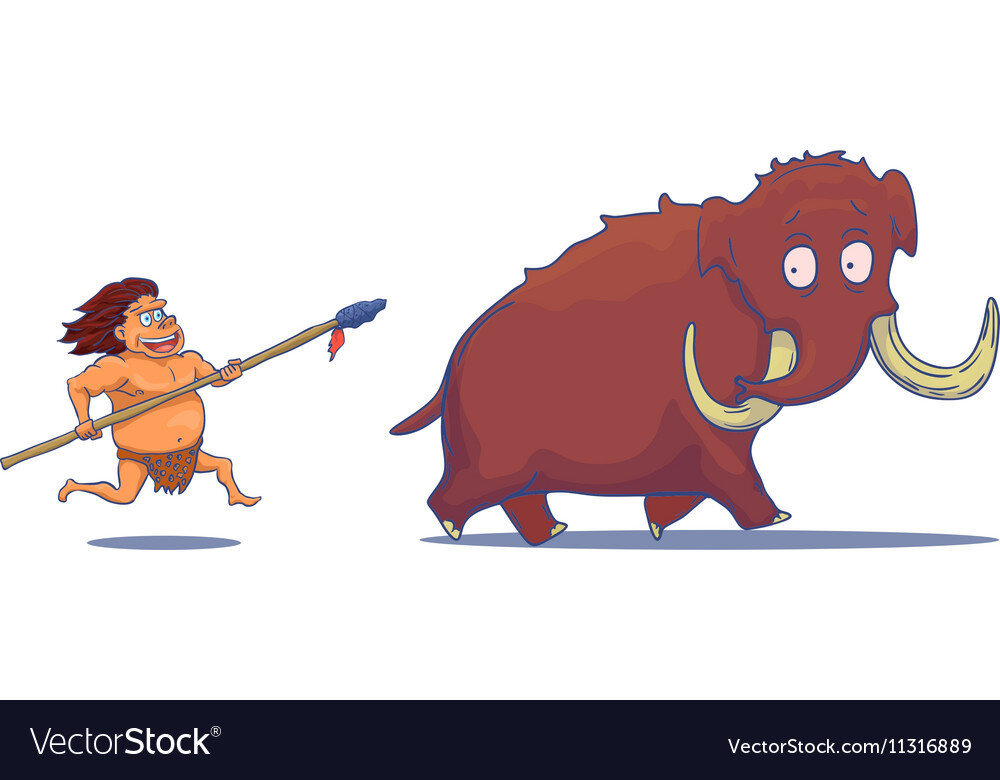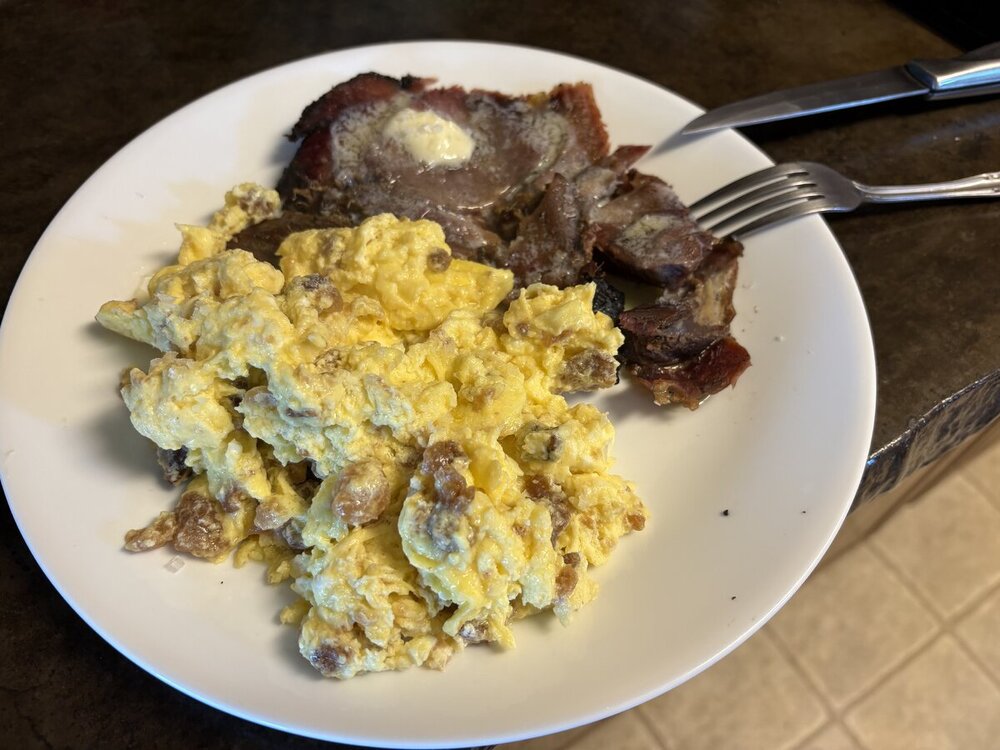
Everything posted by Geezy
- Sound advice
-
Road to carnivore
A good breakdown but I disagree with his last statement that fruits and vegetables can mitigate the effects of ultra processed foods. I would argue that they can help exasperate it.
-
Autoimmune, new to carnivore needing direction
The best starter book in my opinion is The Carnivore Diet by Dr. Shawn Baker. It’s easy to read and he covers all the basics on how to get started and how it all works in your body.
-
Far ahead of his time.
I hear you. I graduated in 74. I remember well the bad lunches we had back then. In our cafeteria we had the regular serving line and a snack bar. I hit that snack bar everyday eating a burger and chips. My kids never ate a school lunch. My wife always packed them a lunch.
-
General Health Knowledge
I haven’t come across this guy. I’m very limited to what I can do due to too many injuries and surgeries. I do what I can though.
-
Road to carnivore
Good way of looking at it. This is about you and nobody else. This is your journey so don’t let anyone else make you ever feel inferior for what you are doing. You’re not doing this for them. I’m glad you found that channel to help you over that. You’ve always got us to come to as well now. We are here for you.
-
Road to carnivore
She is spot on. I don’t see carnivore as extreme, it’s just basic.
-
Far ahead of his time.
Lol! I’ve told my wife that if I ever have to stay in a hospital again she’s going to be kept busy bringing me food because I never intend to eat that junk they call food in a hospital again.
-
For you coffee drinkers out there.
After I quit drinking coffee and then tea I would drink a cup of hot bone broth with a tablespoon of butter whipped into it for a morning drink.
-
For you coffee drinkers out there.
Yeah unfortunately Kent isn’t carnivore but I get a kick out of him. I’ve never had the pleasure of eating from his chuck wagon back when I was cowboying but I’ve never walked away from other cuck wagons hungry.
-
2 Year "Carniversary" Q&A with Bob, Geezy, and maybe YOU! [Video/Podcast]
Join Bob and Geezy for a Monday night Carnivore Q&A as they both celebrate their 2-year carnivore diet anniversaries. You can join us in any of the following ways.... 1) Watch the LIVE Stream and chat with us and other viewers over on YouTube... https://www.youtube.com/@CarnivoreTalk 2) Leave us a Voicemail recording and we will play it and answer it ON AIR. https://carnivoretalk.com/voicemail/ 3) Leave your question below and we will answer it during the LIVE stream. 4) Register an account at https://www.CarnivoreTalk.com and you can get the link to join us ON AIR with or without your camera on. JOIN THIS CHANNEL TO GET ACCESS TO PERKS! https://www.youtube.com/channel/UCeAwaxsqfNEK4ZtfWX3Dz3g/join VISIT OUR FREE KETO/CARNIVORE COMMUNITY! https://www.CarnivoreTalk.com LET'S DO A VIDEO TOGETHER! Have YOU had success with a meat-based keto, ketovore, carnivore, carnivore-centric, or animal-based diet? Let's do a video together! Contact me using this form... https://carnivoretalk.com/contact/ HAVE YOUR QUESTION ANSWERED IN A FUTURE VIDEO: Click the link below to leave us a Voicemail, and we might feature your question on the next episode of Carnivore Talk. https://carnivoretalk.com/voicemail/ SEND SNAIL MAIL TO: Robert Angle Carnivore Talk PO Box 1367 Stow, OH 44224 DISCLAIMER: The Carnivore Talk website and its audio and video content are for general informational purposes only. The use of the information found within our content or from materials linked to from our content is at the user’s own risk. The content published by Carnivore Talk is not intended to be a substitute for professional medical advice, diagnosis, or treatment. Users should seek the assistance of their health care professionals to obtain medical advice and to diagnose or treat any condition. We are NOT doctors! 🎙️New to streaming or looking to level up? Check out StreamYard and get $10 discount! 😍 https://streamyard.com/pal/d/6627094927114240 View full episode
-
2 Year "Carniversary" Q&A with Bob, Geezy, and maybe YOU! [Video/Podcast]
Thanks buddy.
-
Nighttime Leg Cramps
That’s odd because that’s usually the first thing carnivores report in just a few weeks. I’m glad you found what works for you.
-
good video-Carnivore/MS
Good video. She basically says it all.
- What Did You Eat Today?
-
Nighttime Leg Cramps
Carnivore stops snoring as well. It cured my sleep apnea.
-
Red pill or blue pill?
I carry my own little pocket salt shaker of Redmond’s. If all that’s at the table is table salt I’ll get out my own but some of the places I go have sea salt so I’ll use theirs in that case. I don’t trust the butter in restaurants as it’s often a butter canola blend and I don’t trust the server or cooks to know the difference.
-
More musings from my devotional
Yea ma’am, I read that this morning as well. It gave me pause to ponder on the reason for my morning devotional and prayers. Am I doing them out of habit or have come to the place where “the habit has been lost in the bliss of unconscious devotion”.
-
More musings from my devotional
That fits perfectly.
-
For you coffee drinkers out there.
Red-eye gravy was a staple in the frontier and cattle drives. It’s not carnivore but it is good. I’ll let Kent tell you all about it.
-
For you coffee drinkers out there.
He’s is citing some studies showing the health benefits of drinking coffee both caffeinated and decaffeinated. The optimal benefits seemed to come from drinking 3-4 cups a day. I personally don’t drink coffee or any plant matter but for those who are carnivore and still drinking coffee this is just a good video to put their minds at ease if they are concerned about it. If you don’t drink coffee then I certainly wouldn’t start but if you do and it doesn’t affect you in any way then forge on and enjoy.
-
Carnivore weight gain
Weight gain is certainly possible on carnivore even if you are strict. Eating too much protein will do it through gluconeogenesis.
-
I'm baaack!
All good reasons to come back Miranda. Welcome back. One of the best things you can do for yourself is to adopt the mindset that this is not a diet but a lifestyle. Diets never last and always fail but a lifestyle is forever. You are choosing to be a carnivore so be a carnivore. You no longer eat those things of the past. You now eat for nutrition and not entertainment. You’ve got this girl. Success is up to you but we are here to support you all we can.
-
Why is bacon so delicious
This is something that I’ve had a few discussions about with other people and I’ve studied and pondered it quite a bit in my Bible studies. Here are my conclusions which I’m always open minded about and always willing to learn more. There is no evidence that prior to the flood that the flocks were kept for anything other than for sacrifice. I don’t remember any mention of consuming the milk. I could see how that might be possible but I would think a more likely scenario might be that the animals were used for the wool and the leather. After the flood we were allowed to eat meat but it was not unlimited as she states until after the new covenant. There was a separation of the clean and unclean. In the present day there are no grains, fruits or vegetables that are made by God. Everything has been adulterated by man and as such is no longer healthy, especially in the quantities that we consume them today. Then add to that, they are full of pesticides (glyphosate) that can’t be washed off. This poor woman is living in a dream world if she thinks she can eat the same as our ancestors did in biblical times. Olive oil. I don’t find any reference where people in biblical times ate olive oil. I’m less sure about this one but the only references I come across are using it to light their lamps and using it as a vehicle for perfumes in the anointing of each other. Wine that we have today is virtually nothing like the wine of the Bible. The wine of the Bible had a very low alcohol content and much of it was like a thick jelly that could be mixed with water to thin it out or be spread on bread. It took lots and lots of wine to get drunk back then from my research. She didn’t mention honey and locusts, I wonder why? If you’re going to eat biblically then don’t discount the locusts. Btw, I’ve eaten grasshoppers and wild honey so I’m one up on her. lol. So anyways, while I think it’s noble of her to consider eating biblically I don’t see how she can truly accomplish it and I just don’t see how it will help her when we know that man does not thrive on those foods today.
- What Did You Eat Today?


